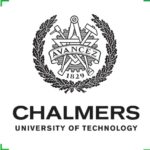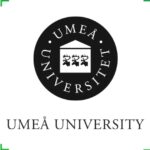Are you a PhD graduate eager to take the next leap in your academic journey? Look no further! Heriot-Watt University, Edinburgh, United Kingdom invites online applications for prestigious Postdoctoral Fellowships across a wide range of research fields. Don’t miss out on this opportunity to propel your career forward.
Candidates interested in Postdoctoral Fellowships can check the details and may apply as soon as possible.
(01) Postdoctoral Fellowship Position
Postdoc summary/title:– Postdoctoral Research Associate in Aerospace Engineering: UAV or Sports Aerodynamics
We are seeking to appoint one outstanding Postdoctoral Researcher with a passion for computational modelling and experimental validation in aerodynamics with aspirations of an academic career. The position will be aligned with advancing research in the new research group of Aerospace Engineering at Heriot-Watt University. The selected candidate will work under the supervision of Professor Bert Blocken.
Applicants should hold a PhD in Aerospace Engineering, Mechanical Engineering (specialisation Fluid Mechanics), Civil Engineering (specialisation Fluid Mechanics) or the like. Proven excellent expertise in CFD modelling is a strict requirement, additional expertise in wind tunnel testing is a plus. Expertise in integrating Artificial Intelligence in aerodynamics is also a plus.
Deadline : Open Until Filled
(02) Postdoctoral Fellowship Position
Postdoc summary/title:– Postdoctoral Research Associate in Aerospace Engineering: UAV or Sports Aerodynamics
The Quantum Photonics Laboratory at Heriot-Watt University (HWU) is engaged in research covering solid-state photonics, engineering coherent light-matter interaction using quantum structures and devices, and exploiting such devices for quantum technologies. The group consists of about 25 members, including five academics: Dr Margherita Mazzera, Prof Cristian Bonato, Prof. Brian Gerardot, Dr Mauro Brotons i Gisbert and Dr Christian Bekker. The quantum photonic platforms used within the group includes rare-earth doped crystals, defects in wide band-gap materials such as SiC or diamond, two-dimensional materials ‘beyond graphene’, quantum dots in III-V semiconductors. The group has well-equipped laboratories for quantum optics and high-resolution laser spectroscopy of quantum emitters at room and cryogenic temperatures, radio-frequency control of electronic/nuclear spins as well the facilities for fabrication of novel optoelectronic / quantum photonic devices.
The group is affiliated to the Institute of Photonics and Quantum Science (IPaQS), which is one of the UK’s largest photonics-oriented research institutes. IPaQS has a strong culture of collaborative research, which is built on the regular exchange of ideas between our experimental and theory groups. We are a tight-knit community of academics that support each other’s career development. We have a strong commitment to equity, diversity, and inclusion, and hold regular events that celebrate our diversity and raise awareness about issues affecting the IPaQS community. We boast world-class research facilities, including a 275m2 cleanroom and 2175m2 of high specification optics and laser laboratories, providing the infrastructure needed to conduct internationally leading research in photonics and quantum sciences. The UK Research and Excellence Framework (REF2021) saw Heriot-Watt Physics ranked first in Scotland and 4th in the UK for world-leading research.
IPaQS is part of the School of Engineering and Physical Sciences (EPS) at Heriot-Watt. The University and EPS hold an Institutional and School-level Athena Swan Bronze Award, recognising excellence in championing the advancement of the careers of women in science, technology, engineering and mathematics. We offer a range of family-friendly and inclusive employment policies, flexible working arrangements, staff engagement forums, campus facilities and services to support staff from different backgrounds. Our staff hail from many countries around the world and we pride ourselves as being a welcoming and inclusive place to work.
Deadline :08/28/2024
View more Postdoc Positions Click Here
(03) Postdoctoral Fellowship Position
Postdoc summary/title:– Research Associate in Numerical Modelling of Electrochemical Carbon Capture Processes
We are seeking a creative and motivated post-doctoral researcher to work as part of our international and multidisciplinary team on the CETP-funded DRIVE (“Deep Removal of CO2 and Innovative Electrification concepts”) project (https://drive-co2.eu). DRIVE is a pioneering project at the forefront of combating climate change by focusing on CO2 capture in industrial settings. Aligned with the ambitious goals set by the Clean Energy Transition Partnership (CETP) Strategic Research and Innovation Agenda (SRIA) and in harmony with the European Union’s commitment to achieve climate neutrality by 2050, DRIVE aims to revolutionise the way we approach carbon emissions. Transition Initiative 3 (TRI3) under the CETP framework emphasises enabling climate neutrality through the adoption of cutting-edge technologies such as Carbon Capture and Storage (CCS) or Carbon Capture and Utilization (CCU). DRIVE specifically targets the initial stages of CCS and CCU chains, with a primary focus on enhancing CO2 capture to facilitate negative emissions. DRIVE’s approach is rooted in innovation and collaboration. We understand that achieving high-performance CO2 capture systems requires the integration of advanced solvent formulations and optimised processes. Through holistic modelling and a synergistic understanding of solvent attributes, DRIVE enables efficient and reliable scaling up of deep removal processes, paving the way for a sustainable future.
Deadline : 08/28/2024
(04) Postdoctoral Fellowship Position
Postdoc summary/title:– Research Associate in Applied Photonics and Manufacturing
An exciting opportunity for a Post-Doctoral Research Associate (PDRA) to pioneer radical approaches to manufacturing microstructured optical fibres for next-gen technologies. The successful candidate will work as part of a small team to develop laser-based glass processing techniques and to design and manufacture novel optical fibres. The PDRA position is funded under a UKRI Future Leaders Fellowship scheme project titled “Freeform Silica Fibre Optics via Ultrafast Laser Manufacturing” (MR/X034615/1) and is a collaboration between Heriot-Watt University and the University of Bath. Conventionally, fibre-optic communication relies on solid-core glass optical fibre for signal transmission. However, due to the demand for ever greater data transmission speeds, hollow-core fibres are now being explored for use in data centres and beyond.
The manufacturability of hollow-core fibres, in terms of scale and complexity, remains a potential bottleneck for the industry-wide adoption of hollow-core fibre technology. To address this bottleneck, we recently developed a completely new approach to manufacturing silica optical fibre preforms, called Axi-Stack. Once fully developed, AxiStack will facilitate the manufacture of arbitrarily structured fibre optic preforms with potential to satisfy future fibre optic demand and unlock new applications in broad areas including quantum communication and medical instrumentation. The position will suit an innovative individual with a passion for challenging engineering, who enjoys hands-on experimental lab work and has meticulous attention to detail.
Deadline : 09/12/2024
(05) Postdoctoral Fellowship Position
Postdoc summary/title:– Research Associate in Deep Learning for Computational Imaging in Astronomy, and Beyond
The Biomedical and Astronomical Signal Processing (BASP) laboratory at Heriot-Watt University Edinburgh (HWU), headed by Professor Yves Wiaux, is recruiting a postdoctoral researcher in computational imaging.
The BASP laboratory is developing cutting-edge research on all aspects of computational imaging, from theory and algorithms, to applications in astronomy and medicine. Dr Wiaux is a Professor in the School of Engineering and Physical Sciences at HWU. He is also Honorary fellow at the (UoE) School of Informatics, and Academic Guest at the (EPFL) Signal Processing Laboratories.
The position is open in the context of a large research project aiming to develop a new generation of computational imaging algorithms intended to deliver simultaneously precision, robustness, efficiency, and scalability of the image formation process. The algorithms will be developed leveraging cutting-edge deep learning and optimisation techniques, as well as high-performance computing implementations. They will be validated for applications in both radio astronomy and magnetic resonance imaging in medicine.
Led by Prof. Wiaux, the project is supported by a unique team of international partners: Prof. Pesquet from the Digital Vision Centre at Université Paris-Saclay (CVN), Prof. Pock from the Institute of Computer Graphics and Vision at Graz University of Technology (ICG), Prof. Thiran from the EPFL Signal Processing Laboratories (LTS5), Mr Jackson at the UoE Parallel Computing Centre (EPCC), Prof. Smirnov from the South African Radio Astronomy Observatory (SARAO), Dr Akiyama from MIT Haystack Observatory (Haystack), Dr van Heeswijk from the Radiology Department of Lausanne University hospital (CHUV).
Deadline : 10/01/2024
(06) Postdoctoral Fellowship Position
Postdoc summary/title:– Postdoctoral Research Associate in Microbial Biotechnology and Synthetic Biology
You will develop synthetic biology tools and transformation techniques for a wide range of bacteria of environmental importance and engineer strains for biosurfactant production and bioremediation, and do this with engineers and industrial collaborators, and test application of these strains in larger scale bioreactors and environmentally relevant locations. You will analyse and interpret data, write up results and present information on research progress and outcomes. You will also have the opportunity to contribute to grant applications and will be involved in the supervision of researchers and teaching of students within the PI’s group.
As the lead Postdoctoral Research Fellow on the project at Heriot-Watt University, you will have a strong background in environmental microbiology, molecular biology, and recombinant DNA technologies. The ability to consider interdisciplinary scientific approaches is a key strength. The role requires some fieldwork effort. You must be able to work independently, have strong organisational skills, and thrive in seeking solutions to a variety of challenges. You will be enthusiastic, outgoing, and able to work as part of a larger team including other postdocs, technicians, and PhD researchers.
You will hold or expect to be awarded within 3 months of appointment, a PhD in a relevant research area. Specifically, we are looking for applicants with strong expertise in plasmid and bacterial mutant generation, although skills in enzyme characterisation and compound quantification using techniques such as GC-MS would be an advantage. You will also have experience of independent research, have publications in respected journals or equivalent within the field and be able to work in a proactive and results driven manner in a high paced environment. You will also have strong interpersonal and communication skills, with the ability to analyse and interpret data and work effectively as part of a team. Advanced skills directly relating to this research area and experience teaching small classes and/or overseeing practices would be advantageous.
Deadline : 09/02/2024
Connect with Us for Latest Job updates
(07) Postdoctoral Fellowship Position
Postdoc summary/title:– Postdoctoral Research Associate in Chemical Engineering
An exciting opportunity has arisen for a postdoctoral research associate to join Professor Ni’s group (www.cobra.hw.ac.uk) as part of the €11 million EU Horizon grant with 10 EU partners. The mission of the EU Horizon project is to strengthen industrial capacity in producing essential chemicals in a sustainable and competitive way by adopting modular and flexible continuous production, and by applying alternative energy forms (microwave and ultrasound) to accelerate and improve reaction conversion.
You will carry out basic scientific research, develop continuous monitoring capability for industrial related crystallisation processes. You will have the opportunity of working on site at industrial partners’ premises to support the training and transferring of continuous crystallisation science and technology.
Deadline : 08/31/2024
(08) Postdoctoral Fellowship Position
Postdoc summary/title:– Research Associate in Multiphase Flow and Experimental Fluid Mechanics: Developing Responsive Gas-Solid Vortex Chambers
The Research Associate will work on the EPSRC-funded project REVOC – Towards smart manufacturing: Responsive Gas-Solid Vortex Chambers (EP/Y00888X/1) aimed at developing compact, robust, and modular technology to intensify gas-solid processes underpinning industrial decarbonization.
The appointed candidate will work with a computational PDRA, technicians, UGs students and the project lead, Dr Victor Francia, and contribute to the broader research group, xFlow – Complex Flow Technologies, meetings and activities designed to support REVOC. They will play a central role in the project driving the experimental component of the work, and the interaction with industrial partners and the advisory board. The applicant will develop and commission new facilities, liaise with mechanical workshops to prototype vortex chambers, and study the dynamic behaviour of centrifugal gas-solid fluidized beds.
REVOC will introduce for the first time, the means to control externally the structure of a gas-solid vortex (imagine particles swirling in a strong tornado) to optimise mixing in a gas-solid reactor, adapting its operation “on the fly” to changing targets, loading and feedstock. This new paradigm can transform a powerful technology platform emerging in Europe [1,2,3] and the US [4], into a high-efficiency low-capital solution that is broadly applicable for gas-solid operations. REVOCs can boost efficiency in catalytic reactors for CO2 valorisation, enable new energy generation and storage devices (e.g. looping, TCES) and Power-to-X processes (e.g. solar reactors), and intensify manufacturing of fast-moving consumer goods FMCGs (e.g. surface treatment, drying, coating). For further details regarding the technology, consult the xFlow vacancy description.
Deadline : 09/01/2024
(09) Postdoctoral Fellowship Position
Postdoc summary/title:– Research Fellow in Scientific Machine Learning
Deadline :09/09/2024,
(10) Postdoctoral Fellowship Position
Postdoc summary/title:– Research Associate in Health Economics and Policy
We are seeking to appoint a (postdoctoral) Research Associate in Health Economics and Policy to work alongside the Adam Smith Chair in Sustainable Capitalism, Professor Adam Dixon, on a new project to develop and execute the “Panmure House Dialogues on Market Solutions for Untreatable Diseases: Policy, Pharma, Biotech, and Investors”.
The rise of untreatable diseases, when antimicrobial drugs lose their effectiveness or do not yet exist, underscores the inadequacies of current market mechanisms in addressing this global health threat. The key question of the project is how can we create economic and regulatory environments that align long-term profitability with societal health needs? We will hold a series of five dialogues with diverse expert participation, which the research associate will assist and help coordinate. Participants will include biotechnology and healthcare companies, their investors, and other stakeholders in the health sector. As such, we will create a space for focused discussions on the economics of antimicrobial drug R&D innovation and understand the incentives for their production. This also includes considerations of health policy and infrastructure in high-income and low- to middle-income countries, thus ensuring that innovation and distribution is broad-based and equitable.
The research associate will conduct background research (literature reviews; policy reviews) on each dialogue topic, which will be used to support the conversation, feed into post-dialogue recommendations, and academic publications. The research associate will also conduct (or support) semi-structured interviews with different stakeholders in private and public sectors. This may include international travel.
Deadline : 09/26/2024
View Fully Funded PhD Positions Click Here
About Heriot-Watt University, Edinburgh, United Kingdom – Official Website
Heriot-Watt University (Scottish Gaelic: Oilthigh Heriot-Watt) is a public research university based in Edinburgh, Scotland. It was established in 1821 as the School of Arts of Edinburgh, the world’s first mechanics’ institute, and subsequently granted university status by royal charter in 1966. It is the eighth oldest higher education institute in UK. The name Heriot-Watt was taken from Scottish inventor James Watt and Scottish philanthropist and goldsmith George Heriot.
Known for its focus on science and engineering, it is one of the 39 old universities in the UK comprising the second cluster of elite universities after Oxbridge.
Heriot-Watt was established as the School of Arts of Edinburgh by Scottish businessman Leonard Horner on 16 October 1821. Having been inspired by Anderson’s College in Glasgow, Horner established the School to provide practical knowledge of science and technology to Edinburgh’s working men. The institution was initially of modest size, giving lectures two nights a week in rented rooms and boasting a small library of around 500 technical works. It was also oversubscribed, with admissions soon closing despite the cost of 15 shillings for a year’s access to lectures and the library.
Disclaimer: We try to ensure that the information we post on PhdNest.com is accurate. However, despite our best efforts, some of the content may contain errors. You can trust us, but please conduct your own checks too.
Related Posts
- 21 Postdoctoral Fellowship at Chalmers University of Technology, Gothenburg, Sweden
- 14 Postdoctoral Fellowship at Lund University, Scania, Sweden
- 10 Postdoctoral Fellowship at Umea University, Sweden
- 07 Postdoctoral Fellowship at Stockholm University, Sweden
- 21 Postdoctoral Fellowship at Uppsala University, Sweden
- 24 Postdoctoral Fellowship at University of Manchester, England
- 06 Postdoctoral Fellowship at European Molecular Biology Laboratory (EMBL), Germany
- 15 Postdoctoral Fellowship at University of Amsterdam, Netherlands
- 13 Postdoctoral Fellowship at University of Nottingham, England
- 24 Postdoctoral Fellowship at Technical University of Munich, Germany
- 05 Postdoctoral Fellowship at University of Queensland, Australia
- 24 Postdoctoral Fellowship at Oak Ridge National Laboratory, United States













